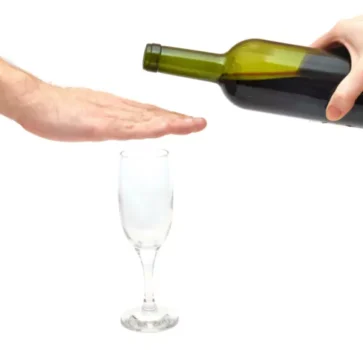
It was found that the average American worker spends $3,035 per year on afterwork drinks—that’s the equivalent of over 650 beers. Being under the influence of alcohol at work is not covered by employment laws, but there is health and safety legislation that relates to the subject. Sections 2, 3 and 4 of the Health and Safety at Work Act 1974 state that employers have a duty of care to ensure the safety, health and wellbeing of employees. This means that putting employees or others at risk by allowing a drunk employee to continue working could make the employer liable in law.
Supervisor’s Role
It’s important to remember that any employee with a drinking problem has the same right to support and confidentiality as those with other mental or physical health issues. This guide will explain how to help an employee who has a drinking problem, what to do if they’re drinking during work hours, and whether alcohol dependence can count as a disability. Those who are in recovery from substance abuse—or even just trying to cut back—could have an especially difficult time. You may implement the best prevention strategies yet still have alcohol misuse in the workplace. If you suspect an employee may need help, it’s essential to provide access to the professionals who can adequately screen and assess them to determine treatment needs.
How Culture Influences After-Work Drinking Habits

Research indicates that consistently high levels of alcohol consumption are directly linked to the development of serious liver diseases such as cirrhosis and hepatitis. Dr. Gautam Mehta from the UCL Division of Medicine and the Royal Free Hospital highlights that only a third of people who drink heavily develop severe liver issues, suggesting individual variability in susceptibility. However, the dangers are substantial and warrant serious consideration for anyone regularly consuming alcohol after work. Engaging in regular after-work drinking can have significant mental health implications, such as the development of alcohol dependence and the exacerbation of depression and anxiety. Additionally, regular alcohol consumption can mask or worsen symptoms of mental health conditions, creating a vicious cycle of self-medication and increased dependency. When drinking is deeply embedded in a company’s culture, it can become a crutch and a substitute for the very kind of connection that managers hope to foster when they organize happy hours.
- Whether you’re looking to relax alone or catch up with friends, an after work cocktail is the perfect way to wind down.
- However, having a drink after a workout once in a while isn’t really going to have long-term effects.
- The alcoholic is simply not aware of what is going on in his or her body.
- If you or a family member is dealing with alcohol addiction and are ready to take the next step towards recovery, Coastal Detox is here to help.
- A drug and alcohol policy should be seen as an important and beneficial part of a company’s health and safety policy.
Part-Time Paralegal Wins £41,000 Over Employment Dispute – What This Means for Employers
However, these signs are not specific to alcohol abuse, and may be caused by other health conditions or taking medications. The ADA may apply to people with alcoholism, but it does not require employers to excuse performance issues or misconduct – even if alcoholism causes those issues. Going out for drinks has become a routine for work-related celebration, whether it’s winning a new account or nailing a big presentation. With the alcoholism symptoms rise of coworking spaces, regular beer on tap is advertised as a selling point. Some companies even designate a day of the week for an after-work happy hour.
New Technology: The Projected Total Economic Impact™ of Paycom’s Time-Off Requests Featuring GONE®
- Inpatient treatment involves living on-site at the detox or rehab facility, an approach that keeps patients in a healing environment and allows for better monitoring and treatment.
- The Recovery Village Cherry Hill at Cooper provides a full continuum of care, from medical detox and inpatient rehab to aftercare.
- The Blueberry Whiskey Cocktail is a refreshing and tangy whiskey-based drink that is perfect for unwinding after a long day at work.
Why does an alcoholic continue to drink despite the known facts about the disease and the obvious adverse consequences of continued drinking? In the early stage, the alcoholic does not consider himself or herself sick because drinking after work his or her tolerance is increasing. In the middle stage, the alcoholic is unknowingly physically dependent on alcohol.


Workplace counselling or other support networks offer a much better course of action. There https://ecosoberhouse.com/ are many different kinds of mental health conditions, such as depression, anxiety, schizophrenia and bipolar disorder. Problems with mental health can build up over time or be triggered suddenly by life events.
- By appearances, an individual may be able to drink a great deal without becoming intoxicated, having hangovers, or suffering other apparent ill-effects from alcohol.
- It’s essential to acknowledge that reducing or quitting alcohol can significantly improve both physical and mental health, and professional help can offer the necessary guidance and support for this journey.
- So instead of dealing with what is stressing you out, you use alcohol to give you a short-term relaxation feeling.
- Dana’s passion for cuisine is rivaled only by her love of wine – she enjoys discussing both endlessly.
- It’s a twist on the classic Tequila Sunrise, but with vodka instead of tequila.
- You may implement the best prevention strategies yet still have alcohol misuse in the workplace.